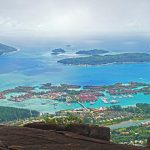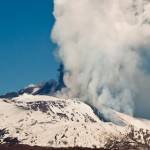Before venturing into the Central African Republic you should get a heads up regarding its safety, so you’ll be properly prepared before you arrive there. Bordered by Chad to the North, South Sudan to the East, the Democratic Republic of Congo to the South, and Cameroon to the West, the Central African Republic is a landlocked country in Central Africa.
Even though most of the Central African Republic consists of Sudano-Guinean Savannas, it also includes an equatorial forest zone in the South and South West, where the capital, Bangui, is also found. In the North and North West predominant is a Sahelo-Sudanian zone and the latter homes an important national park, namely Bamingui-Bangor.
When it comes to nature and its showcasing, the Central African Republic does its job. Among diverse attractions, there is the Dzanga-Sangha Reserve in the Southwest, the Oubangui River, the Manovo-Gouda St. Floris National Park, and the wonderful Boali Waterfalls.
So if you are a nature lover, enjoy the diverse African wildlife and its climate and you’re also up for a safari, you should give the Central African Republic a go. But not before reading the following tips and planning your travel accordingly.
Highest Risks You Are Exposing Yourself to When Visiting the Central African Republic
Overall Risks in the Central African Republic: HIGH
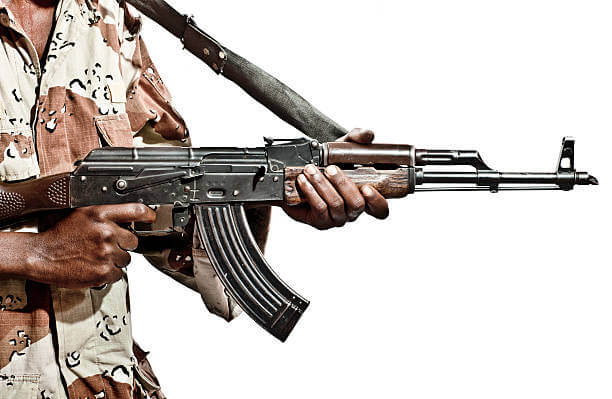
No matter how beautiful the wildlife and the country in general are, you should travel around the Central African Republic with extreme caution and think two times before taking a decision. The active regional war zones and a rebel movement mainly located in the Northeast part of the country make it difficult to explore, professional security being recommended when heading out.
As a result of the turmoil caused by the rebels and diverse conflicts, some of the businesses and schools of the capital Bangui have been closed and officials advise the tourists to avoid certain parts of the capital, especially the PK5 area.
Here, security-related risks, such as pickpocketing, kidnapping, and scamming exist but, as reported here, the chances that a conflict evolves into a gunfight are considerable. Now let’s find out how safe the Central African Republic is for tourists, so you’ll be able to draw a conclusion.
Pickpocketing and Theft Risk in the Central African Republic: MEDIUM to HIGH

As every safety guide, the Central African Republic safety guide will include information about the risk rate of tourists getting pickpocketed. Even though seen as a petty crime, pickpocketing can happen and the places where thieves practice this craft are, of course, the most crowded ones such as airports, hotels, and restaurants. So keep your belongings close when, for example, traveling from the airport to your hotel.
In the case of pickpocketing, basic safety measures are advised although the possibility of dangerous conflicts is to be taken into account as confrontations in this region tend to escalate quickly if one is to take action against any sort of criminals.
- How to avoid pickpocketing and theft in the Central African Republic?
Because of the disturbances and tensions present in the country, the last conflict between armed groups and the security forces have occurred across the capital in the early May of 2018, as reported here, it is highly recommended to not travel alone.
To avoid being pickpocketed, the simplest of measures must be taken, such as avoiding displaying your possessions or even taking them with you as you leave the hotel and carrying large amounts of money. Valuables of any type should also be left at the hotel, and only the necessary should be taken when traveling.
As mentioned before, the risk of getting pickpocketed is medium, but the risk of such a conflict evolving into something more dangerous is bigger if one tries to oppose it. The first thing you should do after something bad happens is to alert the National Police (the local police of Bangui) or the Gendarmerie (present in all rural districts outside the major settlements).
Give the state of the country you must remember not to fight against such acts as the result may put your life in danger. The authorities are the first you should report to, no matter the situation.
Scam Risk in the Central African Republic: HIGH
Following on our list of Central African Republic, safety travel tips are the types of scams you expose yourself to when traveling across the country. Reports of scams inside the capital or big cities are scarce. The most common, and most dangerous as well, are the ones that occur at checkpoints or roadblocks, most of which are not official.
At these checkpoints or roadblocks, you might be asked for a sort of payment, mostly bribes, for your safe passing. There’s also a chance that items you hold, such as passports or electrical goods, get confiscated and payment being demanded in their return.
- How to avoid getting scammed in the Central African Republic?
When it comes to basic scams, such as friendship, romance, business, or work opportunities, you can easily avoid them by asking a second “why?” to yourself and being cautious. Also, avoid the use of ATMs and rather take money from inside the bank, this being a safer way of dealing with possible ATM-related scams or even robberies.
In the case of roadblocks and checkpoints, the best way to avoid any issues is, as mentioned here, to not travel alone and co-operate as much as you can. These will not only help you avoid being scammed but will also decrease the chance of you or your vehicle being fired upon.
Refusal of bribes and payments at these roadblocks has reportedly resulted in robbery, kidnappings, fatalities, and violent attacks. As said before, extreme caution is advised.
Again, avoid dealing with this kind of situation on your own. If you have been scammed, you should go to the authorities and make a report of the situation. Don’t try to act all high and mighty as the Central African Republic is not the place for you to do so, especially in its current situation.
Kidnapping Risk in the Central African Republic: MEDIUM
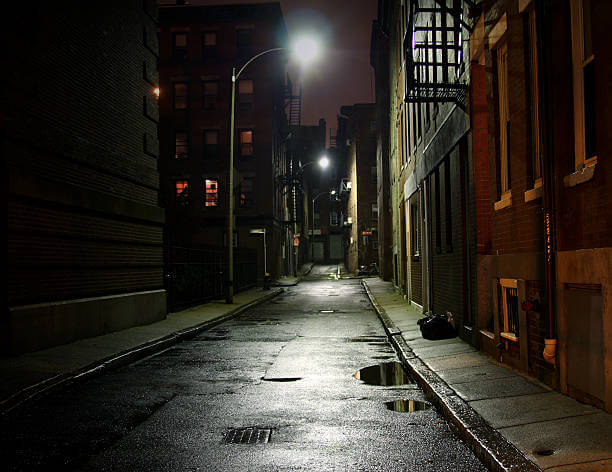
First of all, what is to be taken into account is the fact that the United Kingdom government does not have an embassy in the Central African Republic. Add this to the country’s current situation, rebels, and civil distress and the result is the inability of the local authorities and embassies to ensure traveler safety and security.
If the situation worsens, it may be difficult for tourists to be evacuated in case of events that require such action and it may also be impossible for them to leave the area by any commercial means.
Also, as reported here, there have been cases of officials, United Nations, and NGO workers being kidnapped. Therefore you, as a tourist should tread these lands with extreme caution and trust nobody but yourself.
- How to avoid getting kidnapped in the Central African Republic?
Most of the kidnapping cases are a result of thievery, in case the victim opposes the aggressor and a result of failing to pay for safe passage at the checkpoints or roadblocks. Your best shot at avoiding being kidnapped is the Close Protection For Africa, a professional protection service for anyone in or visiting Africa.
For when in towns, such as the capital, the usual must be done to avoid such cases, meaning you should avoid leaving your hotel during the night, large crowds, or small streets. Also, having a guide you can trust with you will definitely help, as you won’t risk walking in bad parts of the city, or small, dangerous streets.
The key here is to remain calm whenever you have the possibility to try and reach either your embassy or the authorities. In this situation, being calm and reasoning is the best, if not the only, thing you can do.
Terrorism Risk in the Central African Republic: HIGH
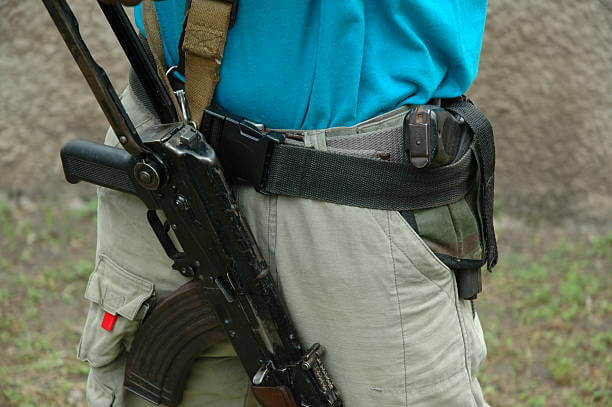
While the risk of a terrorist attack against the United Kingdom’s interests and British nationals is high, the risk for such attacks against U.S. officials and interests is reportedly assessed as low.
Of course, you can never rule out terrorism in a country that’s ravaged by war and rebel groups.
- How to avoid terrorism in the Central African Republic?
In order to avoid terrorists or terrorist attacks you should keep the distance when it comes to events, large crowds of people, churches, and government buildings as these are the most susceptible to being attacked.
Also, try and keep away from any unknown areas you might encounter. Go on with your business and don’t play the explorer if you don’t know the area.
Rule number one is to get to safety. Rule number two is to alert the authorities. Only two rules to avoid risking your life and maybe help others.
Risks for Women Traveling Alone in the Central African Republic: HIGH
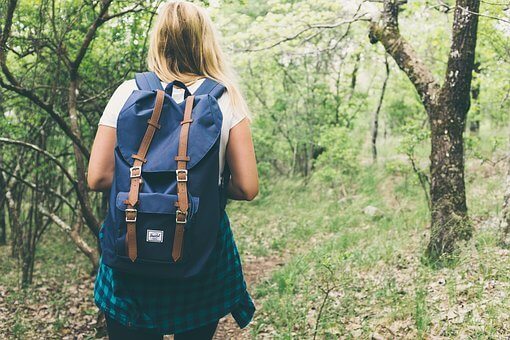
Given the country’s situation and the increasing number of sexual violence reports, it is clear that women should not travel alone in the Central African Republic. You might ask yourself how safe the Central African Republic is for tourists and the answer is that it’s as safe as you make it for you.
- How to avoid crime as a solo woman traveler in the Central African Republic?
Is the Central African Republic safe to visit? That depends on your company and the safety measures you take. Is the Central African Republic safe for solo women travelers?
Definitely not! Women should, if not must, be accompanied at all costs in order to avoid any unpleasant situation. And also, as with most of the aforementioned situations – avoid going out during the night, solo or accompanied.
If you encounter something unpleasant, keep the distance and start running away towards a safe place, as well as calling for help – these are the three things you should do to ensure your safety.
Rape Risk in the Central African Republic: HIGH
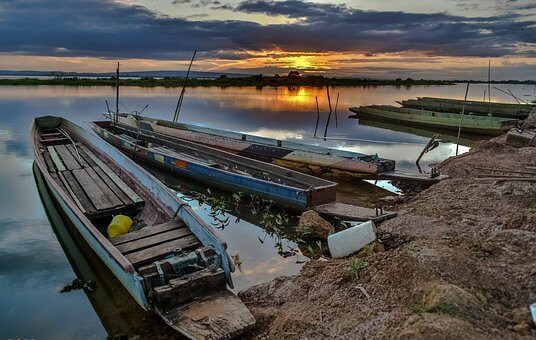
Rape, sexual assault, and even sexual slavery are big problems in the Central African Republic. According to this study, sexual violence is an instrument of war in this country, as the two main parties of the conflict have committed such deeds across the country. Rape is used as a form of punishment, the groups in conflict breaking the laws of war as they attacked civilians, tourists, and such, things ending in even worse things, such as sexual slavery.
Reading the following map we see that most of the areas surrounding the capital Bangui as well as the capital itself have been marked as areas where sexual violence has occurred and will probably occur again.
- How to avoid getting raped in the Central African Republic?
A cornerstone of our Central African Republic safety guide is the fact that you should never travel alone while visiting this country. And even if you are accompanied, avoid roaming the city streets during the night as every one of the potential dangers has an increased chance of happening during the night.
The authorities should be contacted right away in case something happens, but as long as you dress appropriately and take the necessary safety measures, the risk of such a thing happening is quite low.
Risks for People Traveling with Children: MEDIUM
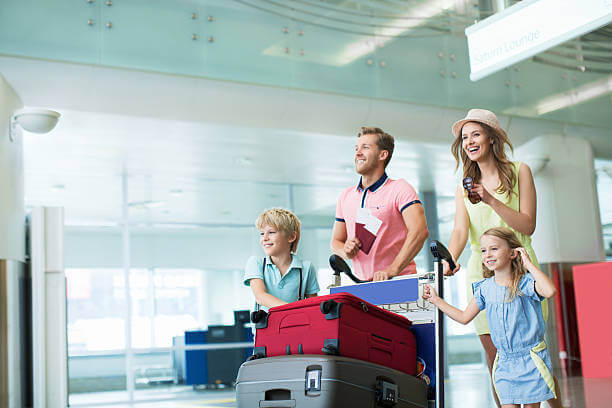
According to this map, it’s dangerous to even for an adult group to visit and travel across the Central African Republic. So you will have to think twice before deciding to take your children with you. But if you do so, you should keep an eye on them all the time and don’t leave them unattended.
The highest of risks is that of kidnapping. Unless you travel with a fairly big group and are able to care for your child all the time, you should travel without the children, as the safety of the Central African Republic is questionable, especially when it comes to women and children.
- How to avoid unwanted scenarios?
When it comes to children, the only thing that should worry you is them running away or simply getting lost in a crowd. However, given that we mentioned kidnappings above, it goes without saying that your child shouldn't even get the opportunity to make him/herself unseen while traveling.
You, as the parent, should always keep an eye on the little ones and makes sure that, no matter what's happening around them, there's someone taking care of them.
This implies that, even if you shop for souvenirs or whatnot, someone should still be there to watch over the children. This means that you should definitely not be traveling alone with your children.
On top of that, you'll also have to be prepared for health-related issues - such as headaches, nausea, colds, and so on. Have a first-aid kid prepared with everything both you and your children may need while traveling. If they're old enough, you might also want to instruct them on what to and what not to do during your trip.
This can help a lot, especially if you know your children are being a little naughty or like to explore their surroundings without an adult.
Natural Disasters Risks in the Central African Republic: MEDIUM
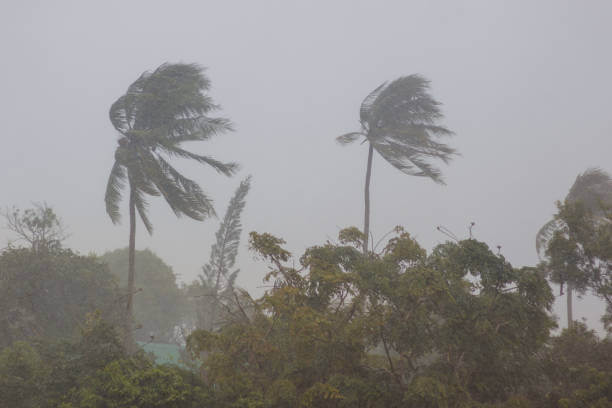
Among natural disasters, the Central African Republic is dealing with floods (in a percentage of 60.9%), storms (30.4%), and wildfires (8.7%). When planning your travels you should always check for the weather condition and for any reports of natural disasters through the diverse online platforms that deal with such information.
Transportation Risks in the Central African Republic: MEDIUM to HIGH
The country is reportedly swarming with bandits, rebels, as well as with criminals taking hostages. On top of that, the city of Bangui is seen as having a rather fragile situation, mainly because gunfire, killings, and looting seem to become common. Still, the government instated armed patrols throughout the city, as well as manned roadblocks meant to address the precarious condition of the capital.
However, the general advice of the authorities and government is to refrain from traveling around Bangui - limit traveling during the day and completely avoid it during the night.
Keep yourself up-to-date with both online and local news to avoid possible conflicts or attacks carried out by criminals/ authorities. There have been instances where civilians have been attacked and killed, by either fighters of armed groups or by armed militia. Civilians - both locals and foreigners - are advised to stay away from crowds and leave the area if they notice a commotion or any similar things. It is also recommended that you travel with a group and not alone!
When it comes to road travel, the country's roads are in a poor condition and will probably require you to drive a 4WD vehicle. On top of that, if you find yourself traveling to the Central African Republic during the wet season - which runs from May to November -, you may want to avoid driving a vehicle, as it is reportedly extremely hard to control due to the roads getting even worse, so to say.
Moreover, due to fuel shortages and lack of gas stations over long distances, it is recommended that you have a decent supply of fuel with you if you plan on driving. If you travel outside the capital city, make sure to pack up enough supplies!
However, you may also want to avoid traveling/driving out of the capital city - while on your own or even with a small group! Reportedly, remote areas come with illegal roadblocks that you can pass only after handing over possessions or money to those running the blocks. On top of that, reports show that travelers/ foreigners have also been attacked in such areas - usually with firearms.
Night-Clubs, Pubs, and Bar Risks in the Central African Republic: HIGH
Given everything mentioned above, it goes without saying that you should stay away from any nightclub, pub, or bar - that if you find one welcoming enough to make you actually enter it. Clearly, the Central African Republic is, at the moment, not the best place for you to unwind, have fun, and maybe have a drink as well.
First of all, keep in mind that you are a foreigner and, as stated, locals will pretty much set their eyes on you as soon as you step inside a building. So it is better not to provoke them - simply with your presence - by trying to visit local pubs or such.
Naturally, we don't even have to mention spiked drunks, proper usage of the taxi services, and so on! The Central African Republic should be visited only for business or for exploring the country's natural sights, so to say - and definitely not for parties or interaction with the locals.
While some cities/ villages are known for their hospitality, the capital's current situation should not be taken lightly, as you'll most likely end up visiting it if something goes wrong and you need refuge.
Limit your trip to traveling and seeing the country, within a tour group preferably, and with as little time as possible spent in the company of locals, strangers - for your own safety!
Health Risks in the Central African Republic
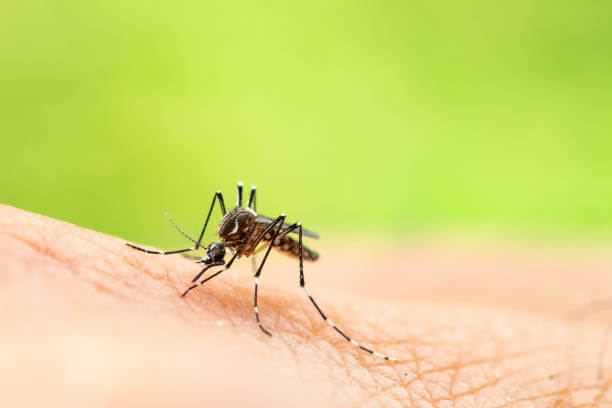
The Central African Republic comes with "extremely limited" medical facilities and, on top of that, their service is also interrupted by common strikes of the government workers. As such, you might end up in a hospital that's under a strike and not get treatment on time.
In such cases, traveling with enough money and with comprehensive travel health insurance helps a lot, as you can rely on your money and insurance for a transfer to another country or to ensure proper treatment in a private facility.
When it comes to diseases, keep in mind that the CAR comes with a risk of Zika virus transmission. You should take the appropriate measures to avoid catching it, so to say - the best you can do is consult with your doctor.
In fact, make sure to check in with him/her at least 8 weeks before any trip that you make, as they can tell you what vaccines you should take or point you to the sources that hold essential health information related to the country you're about to visit!
In case of a medical emergency, dial 610600 and ask for an ambulance. Keep in mind to alert your insurance company as soon as you are sent to a medical facility for surgery and/or treatment.
List of Vaccines You Need When Visiting the Central African Republic
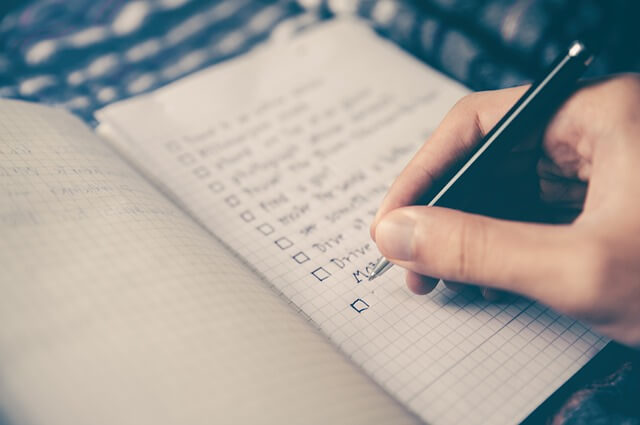
As you probably know, most of the African countries are home to many cases of STDs, Ebola, and water poisoning. What follows is a list of vaccines you might need if you plan to visit the Central African Republic:
- Hepatitis A and B
- Malaria
- Typhoid
- Cholera
- Meningitis
- Rabies
Most Dangerous Areas in the Central African Republic
- Bangui
The capital of the Central African Republic is not very safe. But it is the safest when compared to other areas of the country. Security exists here, but only to a certain extent, and you can expect to be exposed to most of the dangers that have been mentioned. Something to keep in mind is the fact that as you travel further away from Bangui, so does the law decreases its efficiency.
- Bambari
As we move northeast, the danger also increases as we are getting closer and closer to the area that hosts the rebel movement and which is the Central African Republic’s most dangerous region. You are prone to be scammed or assaulted and have limited law support.
- Bria
It is the furthest city away from the capital. Here you can expect a decreased law effectiveness as well as law enforcement. Venturing all the way here without a guide, or even better, without professional protection services is not recommended!
Concluding Remarks: Is the Central African Republic Safe to Visit?
The Central African Republic is home to many places that one should see in his or her lifetime; a truly beautiful country that’s worth exploring. But with its current situation, you have to be on your toes all the time in order to end your voyage safely. We hope we have provided you with the information you needed and remember, as always, to contact your embassy to get properly informed before deciding to travel.

